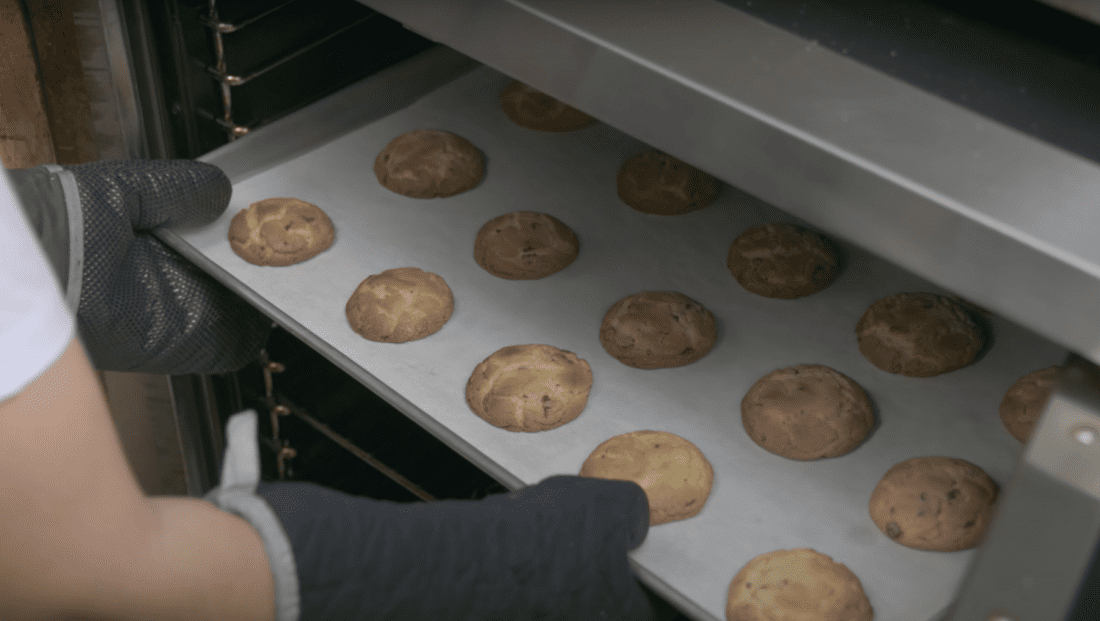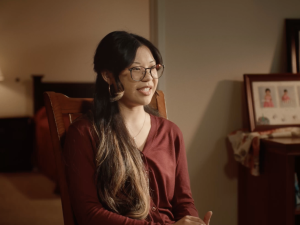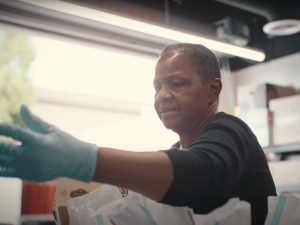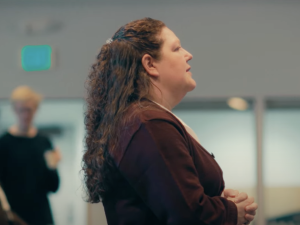Sweet Prayers is a ministry wherein participants visit illicit massage businesses in their area, bringing them home-baked goods.
This helps them build relationships that hopefully lead to new decisions for salvation. It was started by one group and has now spread to seven teams in the USA Western Territory.
Watch to see the impact of this ministry.
Below is a transcript of the video edited for readability.
Major Martha Sheppard: So this right here seems like a legitimate place, but it’s not. And it’s open until one o’clock in the morning. I drive by and I see it open.
Lieutenant Ginifer Pack: And you can see in the back right there, there’s these giant padlocks on the back of their doors so that you have no access from the inside of the house to get out.
Captain Kari Rudd: It was about four years ago and I was sitting in a social justice conference listening to a lady talk about her experience with the legal brothels up in Canada. And she would bring them sweets and it was such an inspiration to me because I thought we could do something like that. That’s what we’re all about. We’re The Salvation Army, so let’s go out there in the darker spaces and just let these folks know, “Hey, Jesus loves you!”
I realized it was time to start visiting the illicit massage businesses. We walked in and we gave them what we call sweet prayer sweets—sweets and we offer up prayers.
As of 2019, The Salvation Army has seven Sweet Prayers chapters throughout the Western Territory.
Ginifer Pack: The reason why we do home baked goods is because it takes time and it’s a process and in those moments or the times when it’s quiet, you can pray for those people that we’re going to be delivering them to.
Kari Rudd: When we bring in homemade, homemade sweets–they get so excited and they light up. It just makes their day and then they start looking forward to it. When you think about what it is that these ladies are going through, what they have to do for a living and their limited options. We just want them to know that somebody’s in your community that first of all knows you’re there and secondly, cares for you and loves you. And then when they ask, “why?” [We say,] “Well, We’re The Salvation Army and we love Jesus and we love you,” and it’s really as simple as that.
Lieutenant Erin Wikle: They’re just so common that I think we’re used to just seeing them. So, a passerby might not think twice about it.
Kari Rudd: We have explicit massage businesses all over and they’re performing acts that are not legal and they’re keeping these ladies there and they’re trapped.
Ginifer Pack: This is not a choice. It’s not something that these people in trafficking can just stop. People that come from foreign countries and their passports are taken and their money’s taken, their access to the outside world is taken. Then people will say, “Just leave the business.” Well, they can’t. They have no resources. They have a language barrier. It’s not as easy as just stepping out.
Kari Rudd: There’s a website that we go to, and it is explicit, but it tells you exactly what’s going on in these businesses. They will name the lady. They will name what she looks like. They will name what she does and how much she costs, you know, exactly what’s going on there. So you know whether they’re legal or not. Things that you want to look for–the windows are always closed, oftentimes the ladies are dressed up, they’ve got their hair and makeup and the whole nine yards and the heels. There will be a front foyer you don’t actually get to walk into the parlor and then they all have a whole nother back space where more private things are going on.
Erin Wikle: They don’t have simple things that they should have on them, like identification. They don’t have the ability to take breaks from their work or don’t have the ability to leave at will. Kind of basic stuff that we would say like human rights, right? These are things that everyone should have access to most of the time.
Kari Rudd: Most of the time when you go in the first few times, they don’t want you there. And so, they’re telling you know, “The owner doesn’t like it. You need to get out. Just leave.” They’ll walk you out. We just continue to offer up prayers in multiple languages.
Lauren Birks: When we’re praying for the women a lot of it is like, “Lord, let this be something that goes beyond language barriers,” because so many of them don’t speak english. We started giving out the support cards which got translated in Thai, Vietnamese, Chinese, Korean–so, hopefully that is some way that they can understand a little bit more about who we are and where we come from.
Kari Rudd: They know where our location is, they know where we’re at, they have our contact information and should they decide to leave they have a safe place to fall.
“Hello, we brought you cookies. Do you guys need prayer for anything today?”
“God we just thank you and pray that you would provide for all of the needs here.”
Kari Rudd: We’re in the trenches and seeking out the lost and those that are sitting in the dark. We’ve invited the ladies to some of our events whether it’s women’s ministries events, whether it’s church–just letting them know that there’s a connection here and that we care for them.
Lieutenant Rebecca Helms: The fact that we remember their names, even the value of being called by name I think made them excited to see us. They know that we know who they are and that we care for them.
Major Stacy Birks: One day, this lady invited us to come in the back and she wanted to show us her baby, she had a brand-new baby. So then another week, we brought clothes and food. We were really happy to help as much as we could. She wants to get out of this industry at some point, she’ll know we’ll be there to help her.
Kari Rudd: So many of us sit back and go, “I can’t do anything,” and that’s really where Sweet Prayers came from. This is something you can do. You don’t have to be on a task force. You don’t have to be part of a coalition. You don’t have to know the breadth of what human trafficking is but you can be a part of the solution. There are illicit massage businesses everywhere. Anybody can bake, anybody can go out and extend love, anybody can do outreach. Anyone can come and participate.
Stacy Birks: It’s pretty simple, just loving someone with a cookie but it really does work.
Kari Rudd: Even if they don’t stop doing what they’re doing, if they just know that somebody cares about them and loves them and it’s because they love Jesus then we’ve witnessed to them.
Do Good:
- See more videos like this in our video feed.
- You’ve probably seen the red kettles and thrift stores, and while we’re rightfully well known for both…The Salvation Army is so much more than red kettles and thrift stores. So who are we? What do we do? Where? Right this way for Salvation Army 101.
- Did you know The Salvation Army served more than 23 million Americans last year fighting hunger, homelessness, substance abuse and more—all in a fight for good? Where can you help? Take our quiz to find your cause and learn how you can join in today.












